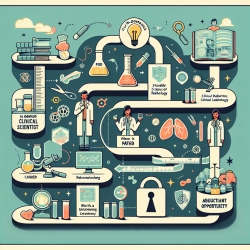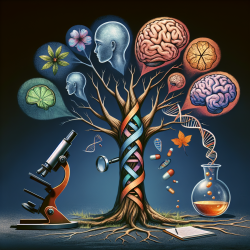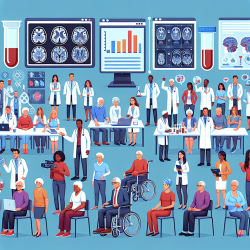Introduction
The landscape of the clinical laboratory workforce is evolving, and PhD-trained scientists are at the forefront of this change. According to the research article, "The Pathology Workforce and Clinical Licensure," PhD scientists are essential to the clinical laboratory team, bringing advanced scientific methods and technologies to modern laboratory medicine. This blog will explore how practitioners can enhance their skills and career prospects by leveraging the findings from this research.
The Importance of PhD Clinical Scientists
The study highlights the critical role of PhD clinical scientists in academic medical centers, commercial clinical laboratories, biotechnology and pharmaceutical companies, and the federal government. These scientists are not only vital for their technical expertise but also for their ability to innovate and adapt to new scientific challenges. Certified PhD scientists are increasingly in demand as they bring a depth of knowledge and skills that are crucial for the advancement of laboratory medicine.
Key Findings from the Research
The PhD Data Task Force (PDTF) compiled a comprehensive data set on the training and certification of PhD clinical laboratory scientists. Here are some key findings:
- There is a growing need to prepare PhD-trained scientists for diverse careers in academia, industry, and healthcare.
- The data collected will inform organizational decisions and government policy regarding future training and certification of PhD scientists.
- There are multiple career opportunities for PhD scientists in various sectors, emphasizing the importance of certification and specialized training.
How Practitioners Can Improve Their Skills
To stay competitive in this dynamic field, practitioners should consider the following strategies:
- Pursue Certification: Certification is a recognized standard that demonstrates expertise and commitment to the field. Practitioners should aim to become certified by boards such as the American Board of Bioanalysis (ABB) or the American Board of Clinical Chemistry (ABCC).
- Engage in Lifelong Learning: The field of laboratory medicine is constantly evolving. Practitioners should engage in continuous education through workshops, seminars, and online courses to keep their skills current.
- Network with Professionals: Joining professional organizations and attending conferences can provide valuable networking opportunities and insights into emerging trends in the field.
- Consider Cross-Training: Expanding skills across multiple disciplines such as chemistry, microbiology, and immunology can enhance job prospects and adaptability.
Encouraging Further Research
The findings from the PDTF highlight the need for ongoing research into the PhD clinical laboratory workforce. Practitioners are encouraged to contribute to this body of knowledge by participating in studies, sharing insights, and advocating for data collection on workforce demographics. This will help shape the future of the field and ensure that training programs align with industry needs.
Conclusion
PhD clinical scientists are pivotal to the advancement of laboratory medicine. By pursuing certification, engaging in lifelong learning, and contributing to research, practitioners can enhance their skills and career prospects. The opportunities are vast, and the potential for impact is significant.
To read the original research paper, please follow this link: The Pathology Workforce and Clinical Licensure.










